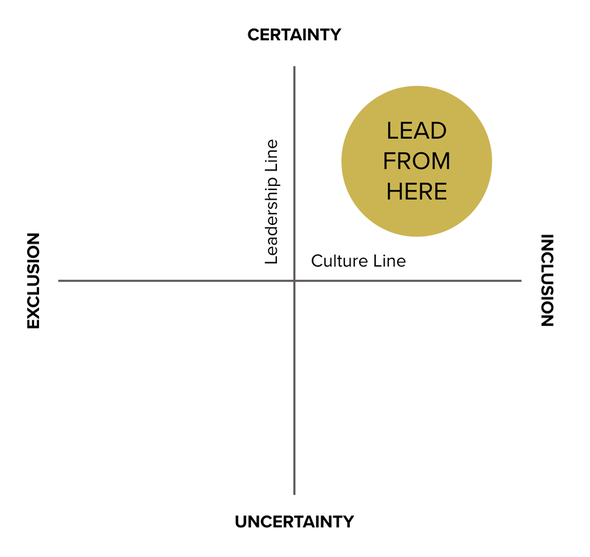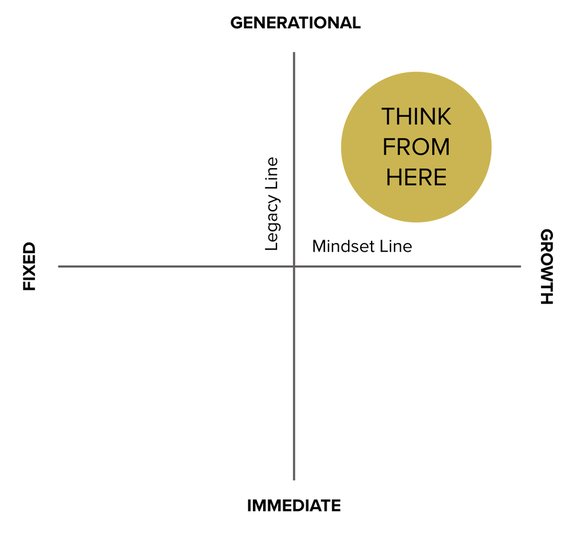|
Guest post by Ashley Preston You did it. You finally took a chance and hired a coach to help you. They are promising to help you turn your life and your business around, but as you work with them, you can’t help feeling like something is a bit off. Are you having buyer’s remorse? Or is it something else? Are you comfortable talking to them? Are they making it easy for you to open up and share what you need to with them? Or do you find yourself hesitating to use the services you paid for? If you’re having doubts, you might want to ask yourself if you’ve hired the right coach. Here are five signs it might be time to look for the exit. 1. They Bully You or Harshly Judge You You hired a coach because they could help you in areas where you admitted you’re struggling. They are there to encourage you; not make you feel guilty or dumb for not knowing something in the first place. No one should make you feel inferior for owning up to your own shortcomings and getting help to improve those personal limitations. That’s how we learn and grow as people. If your coach is making you feel like you’re inferior, if they are talking down to you, or dismissing your concerns without valid reason, you’re not dealing with the kind of person who should be working as a coach. You can’t solve your real problems when you can’t talk about them without fear, and you can’t be truly vulnerable with someone who doesn’t show you the respect you deserve. 2. They Minimize Your Experience, Education, or Training Coaching takes a great deal of compassion, empathy, and patience. It requires the coach to step into your shoes and understand where you’re coming from. A good coach will point out your strengths and remind you how far you’ve already come. That coach would embolden you to use whatever tools are at your disposal in order to move forward with confidence while helping you sharpen up other areas in your life so you can be even more effective. However, if you have a coach who is telling you that because your training or experience didn’t come from the “right” place, or it’s not valid, then you have a crappy coach. It doesn’t matter how you learned what you know. As long as you have your facts straight and are confident in your experience, your perspective is valid and your knowledge is valuable. Don’t let anyone tell you otherwise, especially the coach who was hired to highlight what you bring to the table. No one gets to dim your shine! 3. They Tell You What Kind of CEO You Should Be Did you build a business? Did you make decisions and sacrifices to get where you are? Did you create something and see its success bloom? With all that experience, you have developed your own style of work and management. While coaches can help you reflect on parts that might not be working, or help you see some fresh perspectives that you haven’t considered, it is not your coach’s job to change everything. Why fix something that isn’t really broken? Don’t trust a coach who can’t see your leadership potential and success. A good coach will work with you to create a better mindset so you can be the best version of yourself, not tear you down and rebuild you from the ground up. Walk away from the coach who makes you feel like a terrible CEO when it’s clear that most of what you’re doing worked long before they walked into the picture. 4. They Tell You They Know Exactly How to Fix Your Business One size doesn’t fit all. Some coaches want to believe that a one-size-fits-all approach will work, but it is simply a lazy approach that doesn’t take into account the complexities of your operation or the free market. While a good coach can provide feedback, structure, and advice, these things should act as guidelines. You should have the room to ultimately make decisions that fit your own business without feeling guilty or stupid for doing so. If your coach is saying things like “just trust the program, it works for everyone” there’s a good chance that their system isn’t battle-tested, and they don’t understand the importance of giving you the power to make the choices that will ultimately serve your company best. Only you will know what that is, and a good coach will know when to encourage you to do so. 5. They Bombard You With Too Much Information You need to walk before you can run. A coach is there to develop your potential. A good coach wants to facilitate the learning process by challenging your thoughts and creating an environment that enables you to take it all in. They know that you should master the fundamentals before moving on to more advanced routines. Good coaches care about how much you get out of the program. A bad coach, however, will likely throw a massive amount of information at you, sometimes in no particular order. They do so because oftentimes it makes them feel smart, and if you can’t take it all in, then it’s not their fault that you don’t succeed. It is a lazy approach that leaves you wanting. If your coach isn’t taking the time to explain things, and if they aren’t giving you information that is digestible, you’re not going to benefit from the program like you should. There Are Too Many Coaches Out There. Don’t Settle for Bad Coaching. You should get what you paid for. You should feel supported and seen by a coach. You should feel like they are there to help you. You should feel like they are learning from you as much as you’re learning from them. You should be able to trust them and their vision for you. If you don’t feel that way about your current coach, then it’s time to make a change. Don’t settle for less than what you deserve. Contact the team at Illustrious, ask about our Amplified Executive Coaching program, and let’s get you back on track with someone in your corner who believes in you.
0 Comments
According to the Wall Street Journal, WeWork CEO Sandeep Mathrani recently said that remote workers are less-than-engaged with the companies they work for. Mathrani’s conflict of interest here is staggering as his business model clearly depends on people leaving their homes. Then, Morgan Chase & Co.'s Jamie Dimon said remote work doesn’t work well “for those who want to hustle.” This contradicts a recent SHRM article which stated that:
You cannot tell me that remote workers don't have "hustle" or that they aren't committed. As I see it, there are only two downsides to an all-remote team. The first is losing physical touch and biofeedback loops created by being in the presence of others. The second is losing the opportunity for leadership's shitty ideas to go sour around the water cooler. Having that side conversation in the hallway or throwing some over-the-cubicle shade can be a necessary ingredient to determine viability and feasibility or to create stable bonds in the culture. CEOs leading in remote environments risk fabricating grim fairy tales of how work is going unless they are surrounded by the inputs and outputs of the team. I've seen CEOs make confident and horrible decisions despite the cost to culture and strategy. I've seen leaders get caught up in their own bubble and believe their own bullshit because no one would push back. I've seen entrepreneurs endlessly chase new and novel ideas, calling it "innovation." I've seen too many bosses mistake faith, loyalty or acquiescence for buy-in. Real alignment – real wisdom – is a matrix of legacy, mindset, certainty and inclusion. This is the mythical Zone of Genius. If you aren't leading from this place, you may very well destroy what you're building. The Leadership Line (Uncertainty → Certainty) Certainty in this case does not mean your personal confidence or optimism about your vision or the business’s prospects. On the flip side, I'm not talking about uncertainty in terms of futures, foresight or plausibility. I’m not saying that you should claim to know things you don’t. I'm talking about organizational uncertainty -- a lack of vision or transparency, poor communication, no line of sight into or across divisions, low team morale/confidence, lack of alignment around (or commitment to) OKRs, etc. Uncertainty in this sense is deeply felt and unmistakable. It makes the business (and those inside it) feel like they are floating on a loosely-bound raft, sure to drown at any moment. Leading with certainty lowers resistance to change because everyone has enough information, there is transparency in the planning and they are confident that you’re the leader that will take them there. The Culture Line (Exclusion → Inclusion) On one end of the culture line, team members are excluded, left out of rooms or conversations they feel are important, and kept in silos. An inclusive culture convenes the right voices around the table, puts the right people in the right seats, creates openness and psychological safety, and facilitates meaningful and productive dialogue among team members. An inclusive culture might look diverse or include different opinions or communication styles, but it always respects the individual and treats conflict as an opportunity for growth. The Mindset Line (Fixed → Growth)
In her 2008 book, Mindset, Carol Dweck wrote that people with a fixed mindset avoid challenges, give up easily, see effort as fruitless, ignore feedback and are threatened by the success of others. Those with a growth mindset embrace challenges, persist in the face of obstacles, see effort as the path to mastery, learn from criticism and find inspiration in others’ success. Great leaders view themselves and others with a growth mindset. An individual’s mindset varies wildly depending on what their mind is fixed upon. Being able to spot a fixed mindset is the key to loosening it up and allowing for growth. Notice when your beliefs are telling you that something or someone is “impossible.” Possibilities emerge when you quickly reframe negativity. The Legacy Line (Immediate → Generational) This line indicates the depth or complexity of your decision-making. On one end, we find immediate and short-term benefits to yourself, your reputation, or business. These are quick wins that yield small- to medium-sized returns. On the other end, we see decisions that take into consideration and may benefit the seventh generation and beyond. These decisions might be described as visionary, ethical, sustainable, or having a “long tail.” These require patience and deliver longer-term results, sometimes even beyond the lifespan of the founder. |
Details
ABOUT THE AuthorJoran Slane Oppelt is an international speaker, author and consultant with certifications in coaching, storytelling, design thinking and virtual facilitation. Archives
March 2024
Categories
All
|






 RSS Feed
RSS Feed